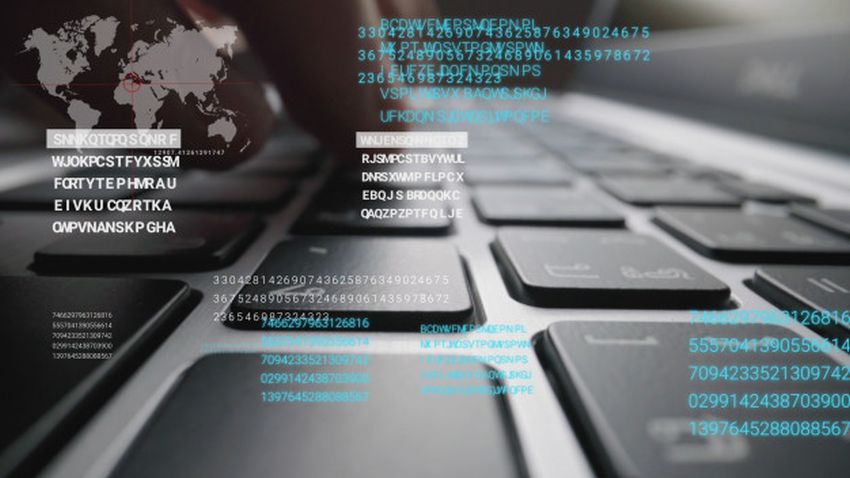Cybersecurity refers to the set of technologies, processes, and methods designed to protect networks, devices, applications, and data from attacks, damage, or unauthorized access. Cybersecurity can also be called information technology security.
Cyberattacks do not discriminate when it comes to industry, regardless of the size of your business. Although data breaches by companies and government agencies tend to be prominent, the truth is that small business are at the top of the list. Small businesses are generally under-protected, often because of the “idea” that they cannot afford the same level of protection as large companies. Adequate data security is not out of reach for you. We have limited five cybersecurity tips that can benefit all small business owners. Here are some of the ways in which you can boost your business’s cybersecurity.
Private Cloud Hosting

img source: freepik.com
Cloud hosting technologies offer businesses more flexibility, scalability, and cost-efficiency in data storage. However, public clouds are susceptible to prying eyes since the resources are shared among several clients.
Control over who gets to see sensitive files is essential in a business. Private cloud offers users additional control to users since only one client is authorized to access the cloud services.
Additionally, you oversee the firewalls, and not even a third-party service provider can change without your permission. Private cloud hosting such as Liquid Web is one of the most secure ways of protecting data.
Companies and organizations that handle sensitive data, with strict compliance to regulations and need the highest form of safety with customization should adopt a private cloud.
Always be prepared. Even the most secure cybersecurity systems can be infiltrated, so always have a plan for dealing with and testing a crime. Implement early warnings – Set up firewalls and security software to warn you when something unusual happens.
Educate Your Staff About Cyber Security

img source: freepik.com
According to Joe Oesterling, Chief Technology Officer at Liquid Web, “more than 50% of security breaches occur due to human error.” Cybersecurity software is essential. However, it is even better to have a staff aware of the security threats that can occur in your company.
It would be wise to invest time and resources and ensure that your employees go through the necessary security training. During the training, begin with the essential security tips that seem like common topics. Begin from the essential skills and build up to more sophisticated tips.
Ensure that the training program is comprehensive. All your staff should attend and participate in the training regardless of their position in the company or organization. As the organization grows and changes its working dynamics, new threats appear.
With the recent threats, there will be a need to adjust and accommodate new security tools and features, and you will have to teach your staff. Training is a continuous process, and updating your staff ensures that you are on the safe side as far as information and cybersecurity are concerned.
Training all staff on the importance of safety and how they can help will not only reduce risks but also improve response times when an intrusion occurs. Offering regular training and updated policy documents will encourage staff to implement the guidelines. Online learning is an excellent way to conduct staff training in cybersecurity.
Limit access

img source: freepik.com
Always protect your information by ensuring that anyone who is not an employee of your company can access your accounts or computers. Further, there should be a limit as to how much information your employees access.
It is important to let regular software updates keep all your computers up to date with the latest security updates. This can usually be done by enabling automatic updates in your operating system or software package. Within organizations, a centralized security update policy ensures that no equipment is exposed.
The more your employees get to know intricate details of the business, the more the business becomes vulnerable to attacks. Provide your employees with the necessary information and that enables them to work without any obstacles. This way, you can safeguard the business’s top secrets and reduce the risk of attacks.
The company’s cybersecurity is an ongoing management process that must be monitored and updated regularly to be effective. Test the systems you have in place and keep accurate records of where improvements can be made and where your weakest links are. Testing and improving your known vulnerabilities will protect you from future attacks.
Use Encrypted Passwords

img source: freepik.com
Encrypted passwords are the unreadable strings to secure data. Usually, the user protects files with a password that is only known to them. You require a decryption key to access the files, which is the preset password by the original user.
A leak of private data into the public domain can tarnish the organization’s reputation or result in costly litigation issues. Ensure that your company adopts the above measures to avoid such consequences.
There is a reason why there is a password strength indicator on many login pages. Having passwords that are easy to recognize or that contain basic business information can increase your chances of falling victim to an attack. You should change your password every two months, especially after an employee leaves the company.
Outdated hardware and infrastructure can create vulnerabilities that can be easily exploited and cannot be resolved by software updates. Whenever possible, update your hardware and infrastructure every two years to keep up with the latest technological advances and improve your protection.



